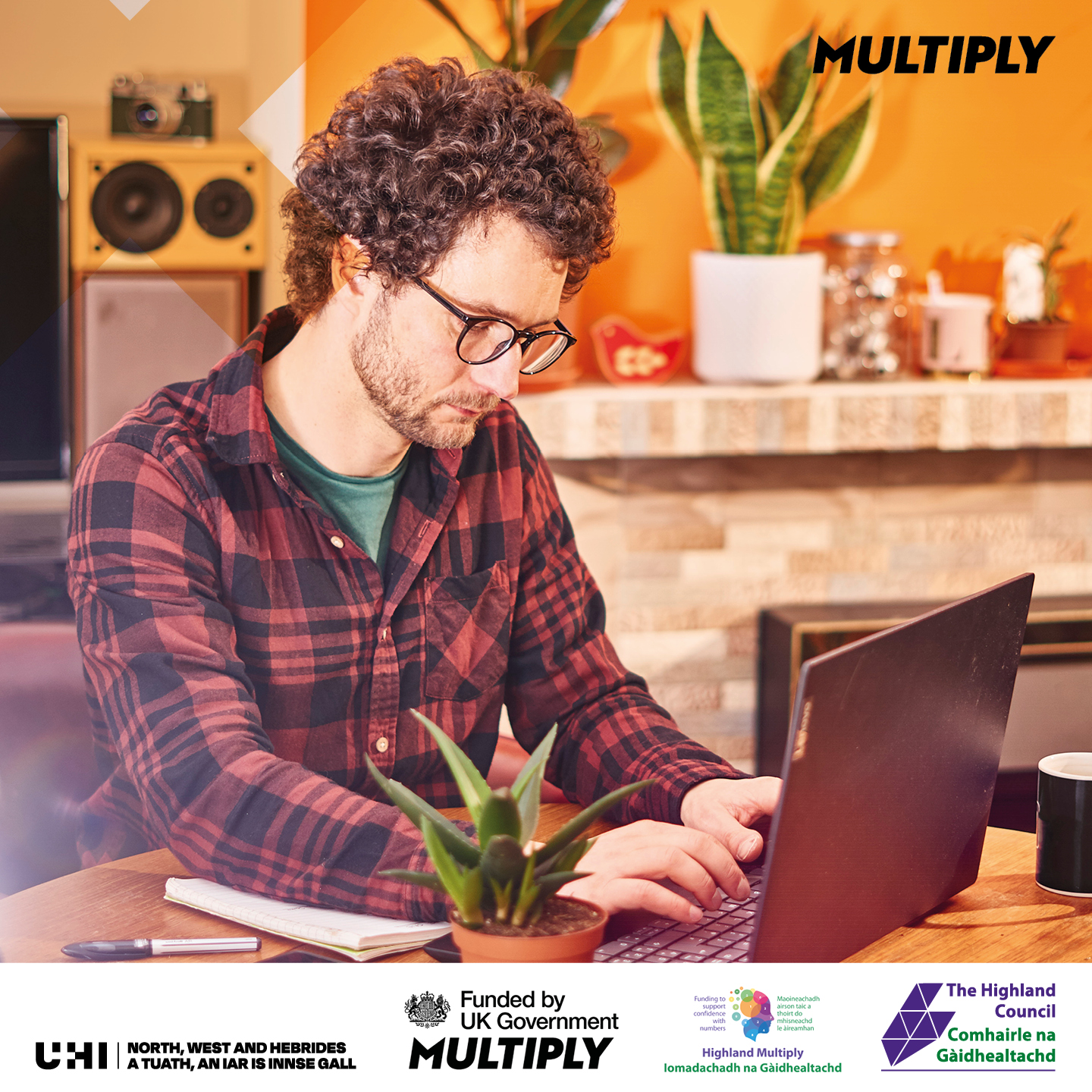Multiply
Improve your confidence with numbers with our free online numeracy tools

We have a new FREE online numeracy resource to develop and practice your numeracy skills. The Multiply project has developed fun, easy-to-access interactive videos, quizzes and scenario-based challenges to help you gain:
• Number confidence for work
• Number confidence for budgeting
• Number confidence for everyday life
Each course will take a maximum of 2 hours each to complete, but best of all you can dip in and out of the sessions when it suits you.
Multiply also offers a number of FREE initiatives to give you the skills you need to make everyday life just that bit easier; from managing finances to helping your children with their homework, to practical everyday activities like shopping or planning a holiday.
- Personalised, free 1-1 sessions with our friendly staff to suit your individual needs
- Occasional drop-in sessions – find out what’s coming up:
- Or you could go onto a National 4 or National 5 Maths qualification – a stepping stone to prepare you for the next stage in your career journey. You will learn online through our virtual learning platform and one timetabled evening class per week, delivered by a lecturer in a virtual classroom in Microsoft Teams, to fit around your life and work commitments.

Multiply is a programme funded by the Highland Council aiming to help transform the lives of adults across the UK, by improving their functional numeracy and is part of the UK Government Shared Prosperity Fund.